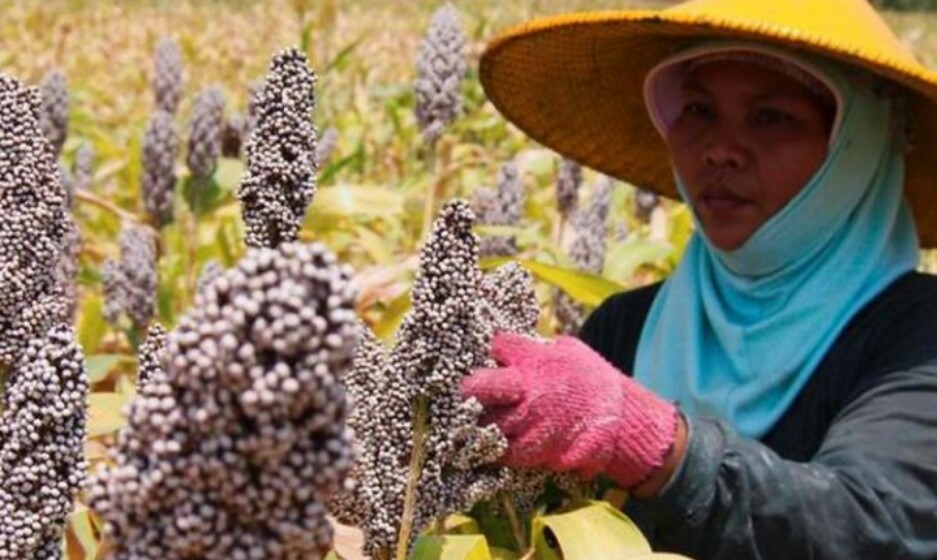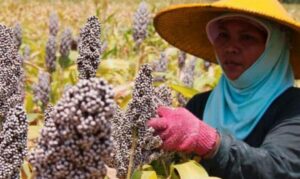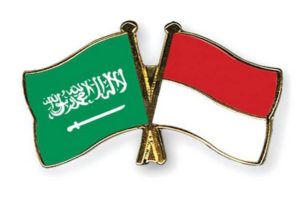Jakarta, MINA – The Indonesian Ministry of Agriculture has boosted the production of a number of local foods to replace or substitute for food commodities that are still dependent on imports, such as wheat.
Director of Cereals at the Directorate General of Food Crops at the Ministry of Agriculture, M Ismail Wahab, said that Indonesia still imports corn, soybeans and wheat.
Therefore, he said, the Ministry of Agriculture has prepared a strategy in the form of increasing productivity and diversifying local food in the midst of a potential world food crisis.
“We are still importing corn for food. This is quite large. This year we are trying how this corn for feed can substitute corn for food,” he said as quoted by Republika online on Sunday.
Also Read: Last Batch of Indonesian Hajj Pilgrims Depart from Madinah
Ismail said that currently Indonesia was only able to meet the domestic demand for maize. The amount of food corn imports in 2021 will reach 987,005 tons or Rp 1.2 trillion. Starting this year, he continued, the government is trying to boost the production of low-aflatoxin corn to replace imported food corn.
“We will do this so that imports can be reduced by domestic production,” he said.
For this reason, the Ministry of Agriculture implements the obligation to absorb local corn, duplicate low-aflatoxin corn products in corn center areas, and use corn seeds that have high starch content. Production trials will be conducted in Central Lombok, West Nusa Tenggara.
Ismail explained that the domestic corn stock is still relatively good. There are even proposals from several entrepreneurs and corn collectors to export 5,000 tons of corn. But the request has not been given the green light by the government for fear of insufficient stock in the country.
Also Read: Fourth Day of Weather Modification Operations: BNPB Disburses 16 Tons of Seeding Material
As for soybeans, he continued, the government has started planting in an area of 350,000 hectares this year. Then in 2023 the planted area is targeted to increase to 900,000 hectares, in 2024 it will be 1.15 million hectares, in 2025 it will be 1.4 million hectares, and in 2026 it will be 1.5 million hectares.
“With this target we have been able to achieve to meet our own needs,” said Ismail.
Last year, Indonesia’s soybean imports were recorded at 7.91 million tons, with details of soybean meal 4.9 million tons and soybean seeds 2.5 million tons.
Meanwhile, to meet the domestic demand for wheat whose price has increased due to the impact of the Russo-Ukrainian war, the government is considering several local food crops to substitute it, such as cassava, sago, and sorghum.
Also Read: Dozens of Volunteers Attend Rumah Zakat’s Basic Training in Bogor
“I think sorghum has great potential to replace wheat,” he said.
Ismail emphasized that food technology assistance is needed to give sorghum the same ability as wheat, which is to contain gluten or a substance that can expand when processed.
In 2021 wheat imports will be recorded at 11.69 million tons. The government targets to reduce imports of these commodities gradually, namely wheat imports to decrease by 5 percent this year, to decrease by 10 percent in 2023, until 2025, wheat imports to decrease by 20 percent.
“Next year we will develop 55,000 hectares of sorghum. This year it is only 15,000 hectares, then we propose an additional 40,000. Total in 2023 there will be 55,000 hectares. This is an anticipation if wheat is really scarce in the world,” said Ismail. (T/RE1)
Also Read: Boycott Impact: Starbucks Closes 11 Stores in Indonesia
Mi’raj News Agency (MINA)




































 Mina Indonesia
Mina Indonesia Mina Arabic
Mina Arabic